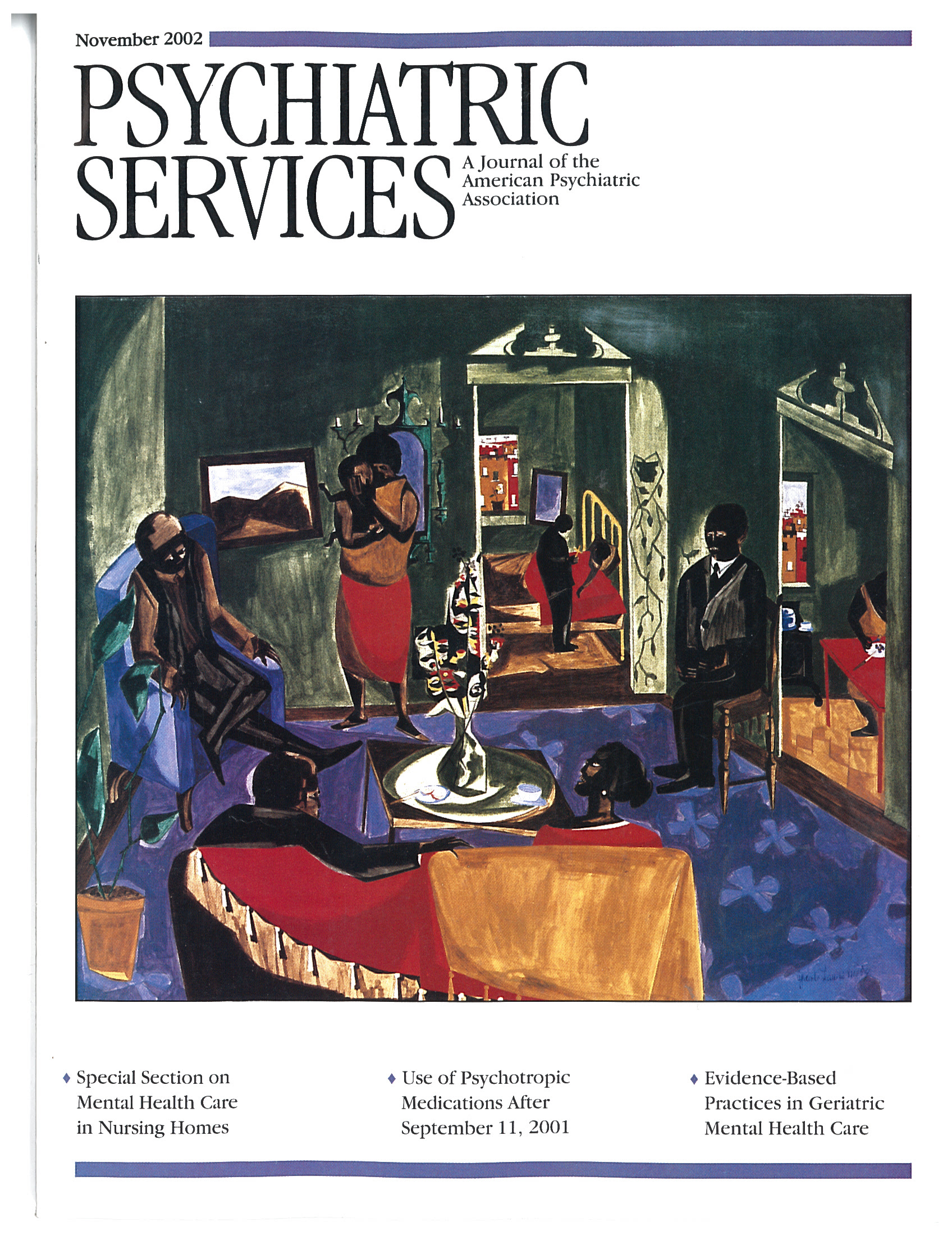A multidisciplinary consensus conference on providing optimal mental health services in long-term care was held June 22 to 24, 2000, in Washington, D.C. The conference, on which this special section is based, was conceived and implemented by a steering committee whose members represented the American Association for Geriatric Psychiatry, the American Psychiatric Association, the American Society for Consultant Pharmacists, the American Psychological Association, the American Geriatrics Society, the American College of Health Care Administrators, and the National Association of Directors of Nursing Administration.
Barriers to research and to the implementation of findings that would improve the quality of life of the increasing number of nursing home patients and their families remain most difficult to penetrate (
1). Despite these barriers, considerable advances have been made in our knowledge of the assessment, incidence, and prevalence of psychiatric disorders and the inordinate unmet need for mental health services in nursing homes.
To overcome barriers to high-quality mental health services in nursing homes, insight into the systems in which they occur is vital (
2). An understanding of governmental agencies, oversights, and payment policies as well as clarification of the role and competencies of primary care physicians, psychiatrists, psychologists, pharmacists, social workers, nurses, and administrators is essential. The authors of the five articles in this special section address these issues.
Stephen J. Bartels, M.D., M.S., and his coauthors (see page 1390) reviewed the literature on the effectiveness of optimal models of service delivery in nursing homes and on provider surveys. Although they advocate more rigorous outcome studies on the optimal intensity of services, composition of interdisciplinary teams, competencies, and cost-effectiveness, their review confirms that most effective interventions blend consultation with the training and education of primary care physicians and frontline nursing staff.
In the second article, Cameron J. Camp, Ph.D., and his colleagues (see page 1397) define the various subtypes of inappropriate behaviors observed among persons with dementia and the unmet needs reflected by such behaviors. This well-referenced analysis of individualized needs assessments is interspersed with an equally well-supported rationale for interventions that are proven to be effective. The authors confirm that much education is necessary to bring the advances made by research into the practice arena and highlight the need for future research.
Next, Marisue Cody, Ph.D., R.N., and her colleagues (see page 1402) address barriers that arise from nursing home organization and structure and that are compounded by external barriers from regulatory agencies and legal and economic constraints. The authors give specific recommendations related to communications and environmental adaptations that can overcome internal barriers. The need to overhaul staffing patterns, education, and reimbursements is an ongoing outcry of all who wish to improve conditions in nursing homes. The authors also discuss their recommendation that nursing homes adopt a risk management approach similar to that used by hospitals.
In the fourth article J. Michael Ryan, M.D., and his colleagues—a fellow psychiatrist and two pharmacists—address the use of psychotropic, antidepressant, anticonvulsant, and cholinesterase-inhibiting medications from both a historical and a regulatory perspective (see page 1407). They bring readers up-to-date on the outcomes of several randomized, placebo-controlled studies that provide an evidence base for various prescribing decisions. Whether and how this research proceeds will depend on federal, state, and local governments and on the pharmaceutical industry. The lack of interface between pharmacologic and nonpharmacologic treatments is apparent and regrettable.
Finally, Joel E. Streim M.D., and his coauthors discuss regulatory oversight, payment policy, and quality improvement in the provision of mental health services in nursing homes (see page 1414). The many acronyms that have been generated by government agencies over the past 15 years are clearly explained within their evolving contexts. The authors clarify the roles of the psychiatrist, the psychologist, and the social worker in budgetary processes, including denial of medically necessary medical mental health services. They explain concisely how assessment, quality measures, and payment policy must be coordinated so that nursing home patients can have access to medical mental health services when "medically necessary." They point out that mental health providers must be offered appropriate financial incentives to work in nursing homes.

